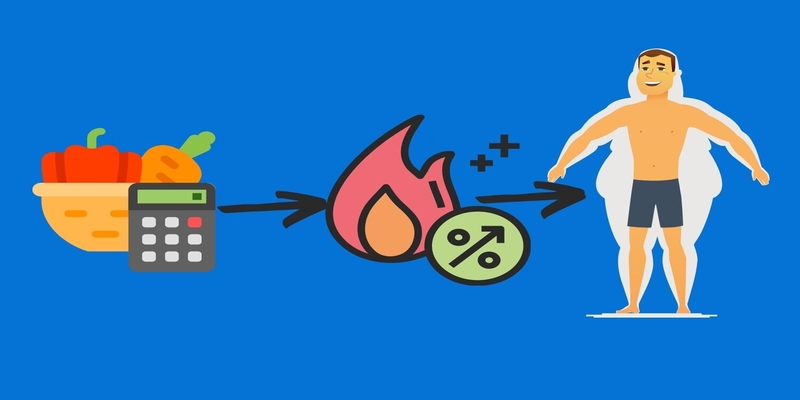Best Time to Have Your First Meal: A Guide to Eating After Waking Up
Mar 12, 2024 By Madison Evans
Have you ever experienced that voracious hunger upon waking, prompting you to raid the fridge before brushing your teeth? Or maybe you're the type who savors the tranquility of early mornings, delaying breakfast until the world fully wakes up. Your first meal after rising isn't just about satisfying hunger; it sets the tone for your entire day. Its timing can affect your energy levels, mood, and cognitive function.
So, how do you balance fueling your body promptly and honoring your body's natural rhythms? Let's explore the nuances of this age-old question: How soon after waking up should you eat?
The Importance of Breakfast:
Breakfast is pivotal in jumpstarting your body after a night's rest. As the name suggests, it breaks the overnight fast, replenishing your depleted energy reserves. During sleep, your body continues to perform essential functions, such as repairing tissues and regulating hormones, all of which require energy. By the time you wake up, your body's fuel reserves are running low, and breakfast is the much-needed refueling station.
It provides vital nutrients like carbohydrates, proteins, and fats, essential for optimal bodily functions throughout the day. Without breakfast, your body may struggle to maintain energy levels, leading to fatigue, decreased concentration, and mood swings. Therefore, starting your day with a nutritious breakfast sets the tone for better physical and mental well-being.
The Breakfast-Metabolism Link:
The relationship between breakfast and metabolism is intricate and multifaceted. When you consume food, your body goes into action, breaking down nutrients and converting them into energy. This process, known as metabolism, is crucial for maintaining overall health and supporting bodily functions.
The Early Bird Gets the Worm: Eating Shortly After Waking Up
The notion of "the early bird gets the worm" extends beyond the realm of feathered creatures; it also applies to our breakfast habits; consuming your first meal shortly after waking up has numerous benefits that can positively impact your day.
First and foremost, eating early jumpstarts your metabolism, signaling to your body that it's time to kick into gear. This metabolic boost helps you burn calories more efficiently throughout the day, contributing to weight management and overall energy levels. Additionally, consuming breakfast shortly after waking stabilizes blood sugar levels, preventing the mid-morning energy slump that often leads to unhealthy snacking.
From a cognitive standpoint, an early breakfast enhances mental clarity and concentration, setting a productive tone for the day ahead. By nourishing your body with essential nutrients early on, you fuel optimal brain function, enhancing your ability to tackle tasks and make decisions effectively.
Furthermore, starting your day with a balanced and nutritious meal sets a positive precedent for your daily dietary choices. It establishes a healthy eating pattern, making it easier to resist temptations later on and maintain stable energy levels.
Eating shortly after waking up satisfies your morning hunger and lays the foundation for a day filled with vitality, focus, and overall well-being.

The Case for Delayed Breakfast: Listening to Your Body's Cues
In a world that often glorifies the hustle and bustle of early mornings, the case for delaying breakfast revolves around attuning ourselves to the subtle cues of our bodies. This approach encourages us to break free from rigid meal schedules and instead adopt a more intuitive approach to eating. Listening to our body's hunger signals and satiety can better align our eating habits with our natural rhythms.
Delayed breakfast, often associated with intermittent fasting, allows our digestive system to rest and rejuvenate during the fasting period. This vital phase promotes cellular repair and enhances metabolic flexibility, making our bodies more efficient at utilizing energy sources.
Moreover, delaying breakfast can foster a deeper connection with our hunger cues, helping us distinguish between true physiological hunger and emotional or habitual eating patterns. By practicing mindfulness around food and tuning into our body's signals, we can cultivate a more balanced and sustainable relationship with eating.
Ultimately, the case for delaying breakfast emphasizes the importance of honoring our body's innate wisdom and nourishing it in a way that promotes optimal health and well-being.
Finding Your Perfect Timing: Listen to Your Body
Finding the perfect timing for that first meal isn't about adhering to strict schedules or following trends; it's about attuning yourself to the subtle cues your body offers. Your body is remarkably adept at signaling its needs, including hunger and satiety. By listening attentively to these signals, you can discover the ideal timing for your first meal after waking up.
Pay close attention to how you feel in the morning. Are you greeted with a rumbling stomach, signaling hunger, or do you wake up satisfied from the previous night's meal? Tune in to your energy levels and mental clarity. Do you feel sluggish and foggy until you eat, or are you naturally energized and alert?
Experiment with different meal timings and observe how your body responds. Notice if eating shortly after waking leaves you feeling nourished and energized throughout the day or if delaying breakfast allows you to maintain focus and productivity until later. Your perfect timing may not mirror someone else's, and that's perfectly okay.
Ultimately, finding your perfect timing involves a journey of self-discovery and mindfulness. Trust your body's wisdom, and honor its needs with patience and compassion. Listening to your body can cultivate a harmonious relationship with food and support your overall health and well-being.

Conclusion: Timing Matters, but Flexibility is Key
In conclusion, the timing of your first meal after waking can significantly impact your energy levels, metabolism, and overall well-being. While some may benefit from an early breakfast to kickstart metabolism and stabilize blood sugar, others may opt for delayed eating, embracing intermittent fasting. Regardless of your preference, prioritize nutrient-rich foods and heed your body's signals for optimal health. Balancing nourishment with flexibility is essential, so experiment with meal timings to find what suits you best and supports long-term well-being.

6 Safe Cardio Workouts for Bad Knees

Best Weight Training Workouts For Field Hockey

Exploring the Mechanisms of Magnesium Citrate and its Effects on Body

A Far-Reaching Guide to Calorie Deficit

Understanding and Overcoming Anxious Thoughts: Practical Ways to Worry Less

Get To Know What Causes HIV? Pay Attention To These Points

Exploring Bee Propolis Benefits, Uses, Dosage, and Side Effects


